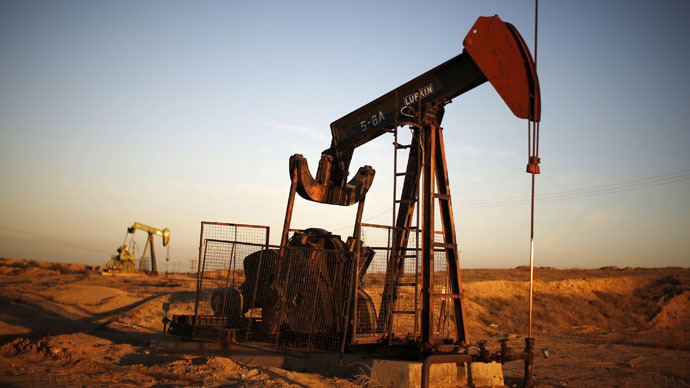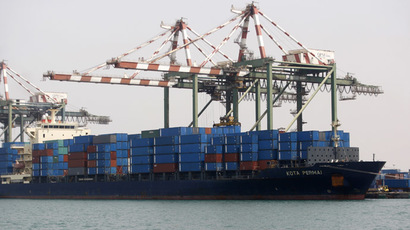Oil gains 3% after Saudi Arabia raises Asian prices

Saudi Arabia, the world’s top oil exporter, has increased prices for Asian customers due to strong demand. This sent benchmark Brent and WTI prices up more than 3 percent.
State-owned Saudi Aramco reduced the discount on its Arab Light blend heading to Asia by 60 cents per barrel for May, a 30 cent increase from April and the second consecutive monthly increase. The company also boosted prices for four other grades it sends to Asia.
Global energy markets reacted to the increase, taking it as a sign that the demand may be slowly catching up with supply.
Brent crude increased 3.3 percent to $56.76 per barrel at 11:21am MSK, and West Texas Intermediate, the American blend, gained 3.4 percent to $50.82 per barrel.
Just a few months ago, Saudi Arabia cut prices to Asia by 90 cents, which was the largest discount in 14 years.
READ MORE: Saudi Arabia eyes boosting oil supplies to China
The gains in oil prices make up for last week, when Brent lost about 3 percent on worries about the reemergence of Iranian crude onto an already glutted market. Iran has between 20-30 million barrels of crude in storage that could potentially come to market in July.
READ MORE:Iran deal sends ripples through oil market
Saudi's Arabia’s Arab Light crude competes with oil from Oman and the UAE.
Tehran cut pricing for May sales of Light crude to the US by 10 cents a barrel and to Northwest Europe by 20 cents, the company said.
In November, the world’s biggest crude exporter decided to keep output unchanged, despite a more than 50 percent drop in oil prices. The decision was taken by all 12 OPEC members, even though the lower oil price made it difficult for many members to balance their budgets. Most analysts asserted that Saudi Arabia, the unofficial leader of the cartel, pushed the decision to cut out smaller players from the market.
The kingdom continues to produce 10 million barrels of oil per day, or about one third of all OPEC exports.














